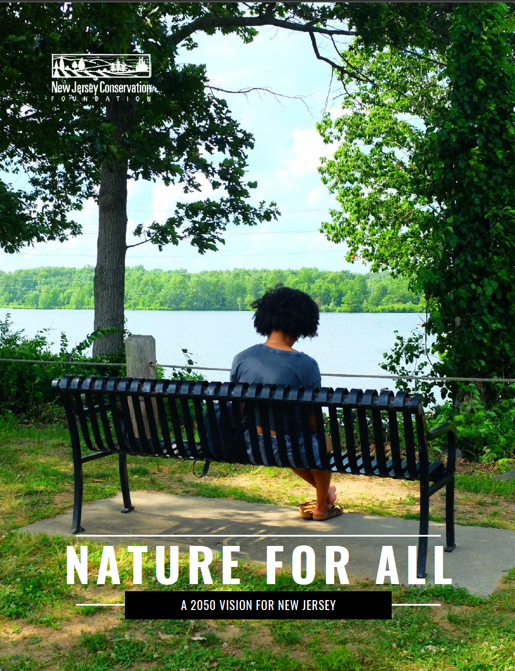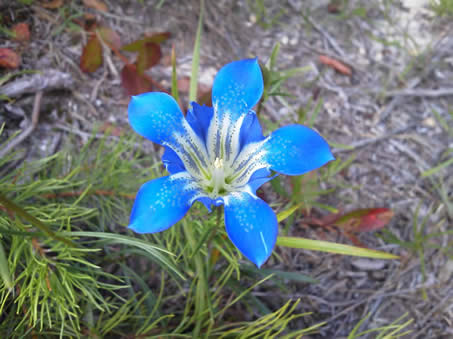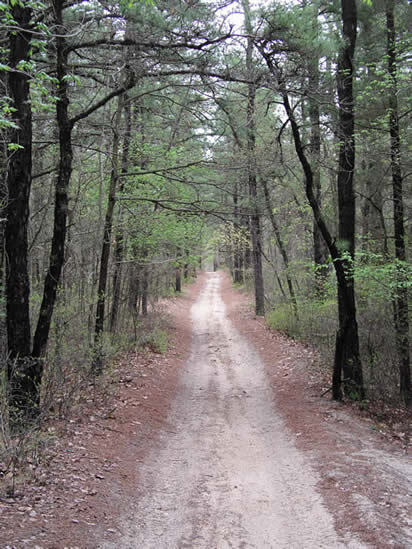Current Issues
What You Need to Know
Nature For All A 2050 Vision for NJ

Protecting our Public Lands Comprehensive Public Land Stewardship
Long-range Planning for Public Forests
New Jersey needs a comprehensive regional vision and plan for its public forestlands to identify and designate ecologically sensitive areas and mature forests as natural areas and ensure that forest stewardship and management activities would avoid Natural Heritage Priority Sites. Such a plan will also ensure the conservation of rare forest interior species, the protection of scenic viewsheds, historic and archaeological resources, and the highly-valued passive recreational opportunities expected by the public on Green Acres-funded public lands.
Fix Our Parks
Fix Our Parks is a movement to ensure that New Jersey’s state parks and forests and wildlife management areas are protected and enhanced for future generations.
Fix Our Parks is coordinated by the Pinelands Preservation Alliance along with the New Jersey Conservation Foundation, New York-New Jersey Trail Conference and New Jersey Highlands Coalition.
Rare Plants
One-third of the plant species native to New Jersey are now considered rare, most are declining, and the public resources devoted to the conservation and management of the natural communities that support these species have been steadily shrinking. The NJDEP Office of Natural Lands Management and the Natural Heritage Program need funding in order to protect these public trust resources.

Program goals:
- Determine and prioritize key public land areas (those generally lacking in pre-existing data), which require rare plant surveys.
- Develop collaborations with non-profit community and funding sources such as Natural Resource Damages funds to conduct rare plant surveys.
- Determine boundaries of new and/or expansion of Natural Heritage Priority Sites and State Natural Areas.
- Ensure that forest management, including logging, is only used as part of comprehensive planning which would ensure the protection of rare plant and animal habitats and other sensitive ecological features.
Green Acres
- The NJDEP and non-profit community have been striving to acquire and preserve parcels with significant conservation and recreation values for decades. Examples include the “Holly Farm” in Millville, the Conrail ROW through Wharton State Forest and other additions to various state parks, forests and wildlife management areas and natural areas. It is critical that these high priority acquisitions are fully funded and move forward quickly.
- Develop full funding for land acquisition in all settings, from urban to rural. Additional protected parkland will be required to meet the needs of both natural resource protection and recreation as New Jersey nears buildout in the next few decades. A harmful concept, specifically that “we already have more public land than we can manage,” has crept into policy decisions in the last decade, when actually most lands do not require active management to protect natural resources, and the pace of protecting additional lands must continue if we are to provide opportunities for future resilience in the face of climate change and our ever-shrinking natural resource base.
- Strengthen the Green Acres diversion rules that apply to county, municipal, and non-profit open space, and strengthen weak and outdated State House Commission requirements for diversions of state parkland.
Additional Important Stewardship Needs
 Restore habitat at the 12-year-old, 65-acre outstanding wetlands violation at Whitesbog, within Brendan Byrne State Forest.
Restore habitat at the 12-year-old, 65-acre outstanding wetlands violation at Whitesbog, within Brendan Byrne State Forest.- In combination with NJ Department of Agriculture Phillip Alampi Beneficial Insect Laboratory and NJDEP Natural Resource Damages funds, investigate means of attaining biological control for our state’s three most disastrous invasive plant species: urban floodplain (Japanese Knotweed), coastal wetlands (Phragmites) and forests (Japanese Stiltgrass).
- Harmful agricultural chemicals, especially neo-nicotinamide coated seeds, are wreaking havoc with pollinators, key insect populations and the food chain in natural environments. The New Jersey Natural Lands Trust has instituted a policy to end the use of neo-nicotinamide seeds on lands leased to farmers, whereas NJ Division of Fish and Wildlife has been able to place limits on harmful farming practices on public land. Statewide policies should be implemented to ban neo-nicotinamide coated seeds and phase-out Roundup Ready crops and sod farms on all leased public trust parklands owned by the NJDEP.
Pine Barrens Forest Protection Addressing ORV damage in Wharton State Forest
In 2017, the DEP pulled back from its plan to curb harmful off-road vehicle traffic in Wharton State Forest. However, we worked with the Pinelands Preservation Alliance and succeeded in urging the Pinelands Commission to adopt a motorized access map for all of Wharton. We are advocating that the DEP, under the Murphy Administration, enforce this new regulation and expand the designation of appropriate motorized access routes to all public lands in the Pine Barrens.
This includes:
- Development of signs and downloadable mapping tools so all visitors are aware of and responsible for vehicular use of state lands
- Increased enforcement and development of restoration plans for degraded wetlands, streambanks and other illegal vehicular damage
- Uphold the recently-developed policy of prohibiting the use of “single-track” forest trails for Enduro-type dirt bike motorcycle races on state lands. Single-track trails scar the landscape and are constantly re-used without permits, causing significant harm to natural resources. Recent actions at Brendan Byrne State Forest indicate that the single-track trail prohibition is not being followed.
A Resource At Risk
At 125,000 acres, Wharton State Forest in the Pine Barrens is by far the largest state-owned forest in New Jersey. This remarkably diverse forest is home to many rare plants, threatened and endangered species and historic sites, including some 300 bird species, nearly 60 reptile and amphibian species, and more than 90 fish species. Forty-three of these animals are listed by the state as threatened or endangered, including bobcats, timber rattlesnakes and red-headed woodpeckers.

Since Wharton was purchased in the mid-1950s, motorized vehicles have been allowed to travel its network of sandy roads to tour the quiet of the forest’s interior, visit historic ghost towns and put in a canoe.
In recent years the damage to habitats and roads within the state forest has greatly accelerated as people in motorized vehicles have deliberately torn up fragile wetlands creating deep and dangerous puddles, destroying habitats, and making access for other users almost impossible.
The damage at Wharton State Forest has also hindered fire suppression efforts, and search and rescue, due to damaged roadways. Enforcement of illegal off-road activities has been extremely difficult without a map clearly designating roads where motorized vehicle use is permitted and delineating those areas that are strictly prohibited.
New Jersey Assuming Leadership on Clean Energy, Climate Change NJ has a goal to reach 100% clean energy by 2050!
New Jersey has made significant strides in addressing the monumental challenge of climate change and becoming a leader on clean, renewable energy.
In the first half of 2018, the state legislature passed — and Governor Phil Murphy signed — the landmark Clean Energy Act, placing New Jersey among leading states nationwide on renewable energy. The law requires that 50% of energy consumed in the state come from renewable sources by 2030, and sets ambitious targets for offshore wind, energy efficiency and storage. New Jersey Conservation Foundation played a key role in shaping the legislation with our partners and then worked to ensure it was implemented effectively, especially the new solar energy policies required. We also successfully advocated for provisions to ensure environmentally-sound siting of utility-scale solar projects in subsequent legislation.
Gov. Murphy also signed an executive order directing the New Jersey Board of Public Utilities (BPU) to create a new Energy Master Plan with a goal of 100% clean energy by 2050. New Jersey Conservation Foundation provided expert input to the BPU to help shape an effective plan that will transition our state away from polluting fossil fuels and toward clean, well-sited, renewable energy — which is the goal of the ReThink Energy NJ campaign that we lead.

Reaching our clean energy goals
Gov. Murphy has also jump-started New Jersey’s most promising, new clean energy industry — offshore wind —through multiple offshore wind solicitations that will bring clean energy, as well as new companies and jobs, to our state.
New Jersey Conservation Foundation is now leading efforts to pass legislation to codify Gov. Murphy’s executive order to achieve 100% clean electricity, and to tackle the second largest source of greenhouse gas emissions in New Jersey: reliance on natural gas and other fossil fuels to heat water and space in our homes and businesses.
To learn more, visit www.ReThinkEnergyNJ.org.
Get The Latest News
From The Garden State
In the
News
